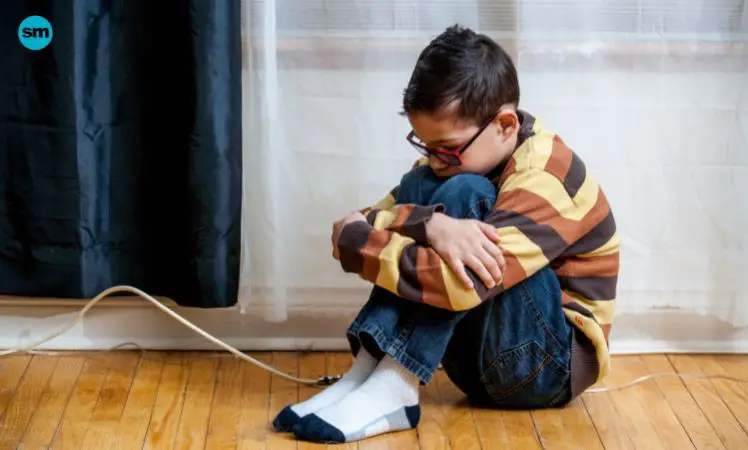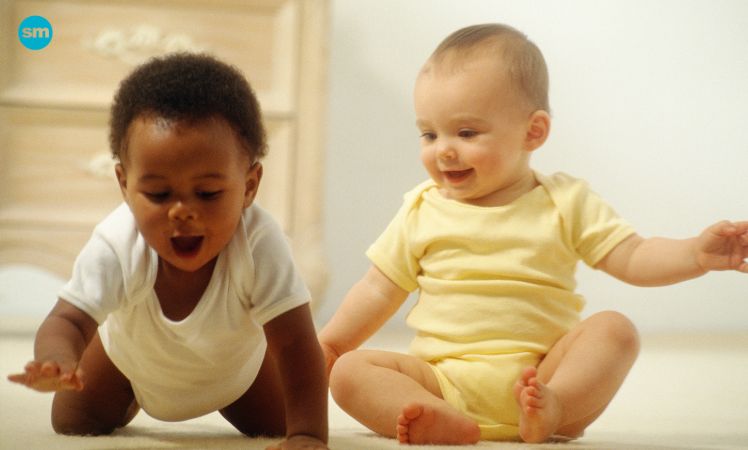Signs Your Child Doesn’t Respect You

Last Updated on January 18, 2024 by Lori Pace
Are you having trouble managing your children lately? It is likely that their behavior has become so manipulative, demanding and disrespectful to yours. In such cases, you should look for red flags that indicate your child isn’t respectful of you or your feelings. As a parent, your job is to help your child become independent and strong. You should be alert to the fact that signs may be clearly indicating that your child doesn’t respect you. It is fine to give them what they want. It’s even better to help them be more flexible and patient with their emotions, with their needs.
What Having A Disrespectful Child Means
Parents should be concerned about their children’s disrespectful and reckless behavior. Children should not be disobedient, angry, irritable, or prone to cursing. You have been always busy earning money your whole life but you neglected to invest in your children-parents relationships.
Your kids also learn a lot from you and your partner, as well as your interactions with other friends and family members. It is not surprising that your children will follow the same pattern toward elders and other people if it becomes a routine.
This disrespectful behavior might surprise you. However, it could be your fault. This is not how you want your kids to grow up. Parents don’t want their children to grow up like this. Let’s now look at the signs that your child doesn’t respect you so that you can catch it early and take action to fix it.
Signs Your Child Doesn’t Respect You
Your child isn’t caring for anyone except themselves. Is it necessary to give them something in order to motivate them? You can tell if your child isn’t loving you or doesn’t respect what you have done for them.
Is Demanding And Mean To You
You, as a parent, have to be attentive to your children’s needs and desires. They will be more inclined to ask for more once they have become more comfortable with getting what they want and need quickly.
They believe they can have everything they want whenever they want it. If you recognize these signs, these alarm you that your child doesn’t respect you. So, be prepare that you might later have to deal with a brat child’s unreasonable wants.
When They Don’t Get What They Want, Your Child Show Signs That They Don’t Respect
When it isn’t possible to help them, you have to manage their anger and frustration. If your child is not taught how to distinguish between desires and needs, they will become a needy spoiled child. They will express dismay when they aren’t satisfied with their needs.
If you give your child everything they want and they don’t learn patience, this could be an indication that they don’t respect you.
Lives In His/Her Own World
Do they expect special treatment and act as if they are the king of their house? It is possible that your children may be self-centered, and don’t see the value in others. They have so much comfort and desire.
This could lead to a problem if they begin to feel grateful for their needs and take pride in those less fortunate. They might also offend other children who don’t get the same treatment at their home.
Your relationship with your children is also conditional. They only love you if you do what’s best for them. If you don’t, your child will be rude and mean to you.
Signs Your Child Doesn’t Respect You When They Don’t Care About Family Rules
They don’t pay much attention to family traditions or rules. They don’t like home rules. This is not about following strict rules. It’s about healthy rules that your parents taught and which you feel are right.
It involves taking care of daily chores and personal hygiene, as well as how to act in front of elders and parents. Their ego is satisfied by breaking family or house rules.
They can be mean to their family members and other colony children. These are the signs of a disrespectful and careless child who has no regard for others.
They Prefer Receiving And Does Not Share
They don’t believe in sharing help or goods. Your child does not believe in sharing food with siblings, or toys with other children. They take over everything they own.
It is okay to not be able to share with others at some point. These behaviors are both normal in children and childish adults. If they are more interested in taking something from someone than sharing it, then that is a sign that you’re raising a spoiled child.
Does Not Have Sympathy For Others
They don’t care about anyone and aren’t open to sharing any information with anyone. They will not accept it if you tell them that you’ll buy them something in the future, instead of now.
If your child doesn’t value your feelings, your concerns or your time, it is a sign that you don’t love them. They will get what they want right away, no matter how. They might become a bully child who loves to hurt others.
Can’t Take No / Rejections
They are naturally upset when they hear nothing. They don’t understand why they are being rejected. Children like them will force you to get what they want, despite your best efforts.
Perhaps you are now blaming yourself for not offering everything they want. Gradually, they developed the habit of ordering everything in one order. This is a sign that your child does not respect you, regardless of what you do for them.
Doesn’t Get Along With Siblings Or Others
If you have a spoiled kid, sibling rivalry can become common at home. They are unpredictable and difficult to manage at home. They fight with their brother and sister over toys and everything else.
Your child is also constantly asking for more treats from their siblings to show that they are special. These kids may also bully and fight with other children in the school or colony. If your child gets constant complaints about his behavior in school and around the neighborhood, it is likely that he is a spoiled brat.
Does Not Do Anything By Themselves
They shouldn’t be doing heavy work or do anything they aren’t yet ready for, but they should be doing things after a certain age. They can have everything you want, but that’s only acceptable up to a point.
Responsible parents are great at this. Respect is a virtue that your children should practice. As they get older, they will be able to do things for themselves. It’s not possible for your children to do this.
They expect you to do the same for them every day, no matter what it is. Your child may not respect you if your teenager refuses help with simple tasks such as chores, grocery shopping, or helping with housework.
Does Not Feel Content Even If They Have Everything They Want
Their needs and wants are endless. They are always looking for something. It is okay to give them as a part of your love as a parent. They don’t stop there. They almost always need more.
It’s not only this, but spoiled children have no regard for the things you give them. They are never grateful for these things in their lives and they don’t feel satisfied with them. If your children are always asking for something but never thanking you, it is a sign that they are not grateful.
They Always Have To Win
This means that your children will not accept defeat or limitations. Your children have not learned to adapt to the outside world because they have lived in such a relaxed and comfortable environment.
They expect the same treatment from their lives as the ones they have at home. When things aren’t going your way, it can be difficult for your child to remain calm and patient. They don’t want anything to be lost, as it’s something that they have never done before.
Tantrums Are A Home Routine
They become impatient because their parents are always there for them. If you are at a better place in your life, and can give them what they want, it’s wonderful.
Problem is that if you don’t want to buy something because it’s a waste, your children won’t get it. Your kids will be more likely to display mean, uncontrollable, and ignorant behavior that is difficult to manage.
They often lash out at others with frustration and tantrums. These are signs your child is rude and mean. Their immediate reactions to rejections can be dramatic or negative.
Why Your Child Shows Signs That He/She Doesn’t Respect You?
The main reason is that: You Haven’t Treated Your Child With Respect Nor Taught Them Anything.
Your children will learn from you more than anyone else at first. Your children will never be able to thank you for your parents, grandparents, spouses, siblings or husbands.
The actions you show have a significant impact on their behavior. You could be the toxic parent who does not love their children . As they age, they will do the same to you because they have been learning and seeing your behavior. Your children will not learn the right things if you fight with your partner, or disrespect your parents.
Children raised in toxic environments and by poor parents are more likely than others to display disrespectful behavior.
How To Deal When You See The Signs Of An Angry Disrespectful Child?
These signs indicate that you are dealing with a spoiled child who doesn’t respect you or anyone else in your family. It is hard to believe that your adorable baby is becoming a devil in the house. But, they’re exactly what they are now.
You can communicate with your child that they are unacceptable and not positive. Here are some ways to deal with disrespectful children.
Learn To Have Patience And Calm Yourself Down
You will usually react with anger when your children are disrespectful or argue with you. It’s still a good idea not to lose your cool. If you are trying to resolve a problem, it is better to be calm than reactive. You can’t convince children to be cool and understanding if you aren’t able to control your emotions and also throw tantrums.
Don’t Use Punishment When Your Child Has Signs That They Don’t Respect
It’s not your intention to make them learn a hard lesson, but to communicate with them in a way that makes sense. It is important to follow the discipline and learn it with a clear head, not under pressure. This is why punishments are not an option, even for spoiled children.
Teach Them and Become an Example, Don’t Expect Them To Know Everything
Children will never learn by themselves. It is crucial to give your child the time and attention they need, especially at the beginning. Find out about their wants and needs. Provide support and love with care, not only with material things.
Provide Them With More Opportunities To Learn The Right Things
Neglecting to train parents and providing poor guidance can often lead to toxic behavior in children. During a game let them accept defeats normally. Be with your children while you are there, and don’t get mad at anyone.
Start by doing a simple task for yourself, and then let your children learn from such examples how to do their normal chores. You can show them that it’s fun to do such things and you don’t have to be ashamed.
Encourage Them To Express Gratitude
You don’t have to create a plan when teaching your children something. It is as easy as watching how you act around your parents.
It is important to create a family atmosphere where you can express your gratitude for even the smallest things. Teach them how to be more supportive, respectful, kind, and caring towards others, even their older siblings.
Appreciate Them When They Do Something Good
They are worth your appreciation, no matter if they get better grades or share their toys with someone new. Similar to how you discipline them when they behave badly, encourage them when they do good. In case you want to have a soft approach, you can consider writing a letter to them day by day, or week by week.
Children do better when they are motivated and encouraged. This makes children feel valued, appreciated, and recognized in the end.
Respect Your Child, Love Them, And Spend Time With Them
Your children take their first inspirations from you. They will copy what you do. Your kids will learn from you that you are there to help them whenever they need it.
Give them parental love and support. Your responsibility doesn’t end with buying them stuff. Your parental ego shouldn’t get in the way when you are taking care of your spoiled children. It will only make matters worse.
Respect your child first and listen to him instead of screaming. Schedule a time each day to talk and listen to your children. Give them the support they need to stay on the right path.










